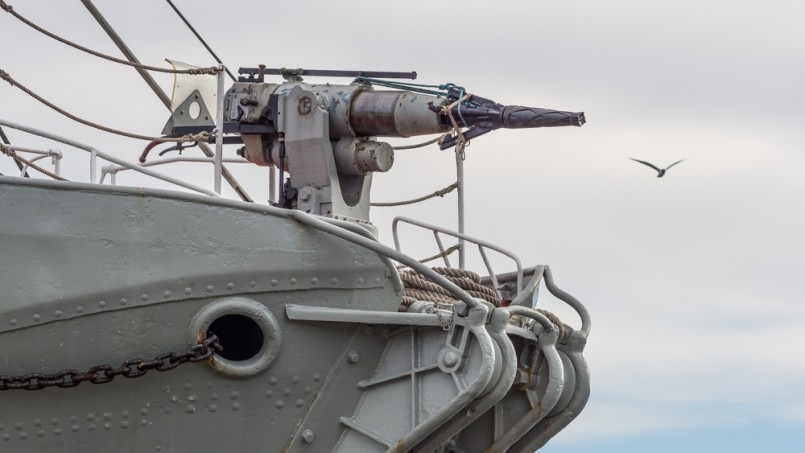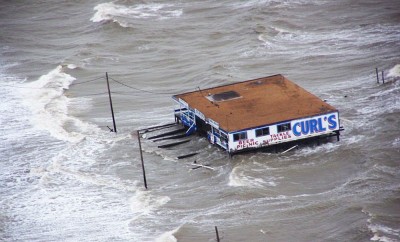Animals
The whale wars aren’t over

Image: Shutterstock/Asmus Koefoed
The Sea Shepherd activist movement to protect the whales is facing new hurdles as legal measures are placing restrictions in their path. Throughout their efforts to prevent the slaughter of numerous whales in the Southern Ocean by Japan’s Institute of Cetacean Research, the group has fought with everything they have including using their ships as barricades, tossing smoke bombs, and damaging the Japanese hunting ships’ equipment with rope. The actions of Sea Shepherd is believed to have saved the lives of more than 3,600 whales from the Japanese whale hunt over the years.
Japan’s dirty whaling history and the current injunction
Although the Japanese whale “research” has been found to lack any sufficient scientific basis as the intended research can be conducted via nonlethal means, and is against international law according to the International Whaling Commission in several ways, there appears to be little in place to prevent their activity aside from the Sea Shepherd movement. Even as Japan has a proven track record of illegal whaling activity spanning at least a decade, the International Whaling Commission appears to do little to manage their consistent violations. In spite of all the evidence against the legality of Japan’s continuing research, the U.S. branch of Sea Shepherd and their founder, Paul Watson, are the ones in a legal bind. Having recently agreed to a settlement ending a five-year legal struggle, the U.S. Sea Shepherd’s hands were tied with the results, which included “a permanent injunction that bars the group from attacking or endangering whaling vessels or approaching any whalers closer than 1,500 feet.” In addition, Sea Shepherd USA is now “prohibited from providing money or property to anyone, including other Sea Shepherd entities, to support (continued) confrontations.”
The Sea Shepherds’ vow to continue
However, Watson has done some brainstorming and insists the group is not done protecting the whales yet. As the injunction only specifies the U.S. Sea Shepherd branch to be barred from future activities in the Southern Ocean, there is nothing in place to stop other countries’ Sea Shepherd groups from taking part in whale protection endeavors. Watson explained, “We are independent and separate entities, and people in Australia and Europe are quite offended that the U.S. would presume to have any jurisdiction over that.” Watson insists the plan will continue using “Dutch-registered ships owned by a European entity in Australian waters going after Japanese fishermen. The injunction only covers Sea Shepherd USA’s involvement.” The U.S. Sea Shepherd attorney Peter Rysman agreed with Watson, and reaffirmed that the U.S. Sea Shepherd group will not participate in or facilitate any further activity in the Southern Ocean in order to avoid being found in contempt of the injunction.
Will they be sorry?
Unfortunately, others read the law differently and believe that any Sea Shepherd fleet from any country will make the group in contempt of the injunction, including Gavin Carter, a spokesman for the Japanese Institute of Cetacean Research in the U.S.
In any case, Sea Shepherd Australia plans to meet the Japanese whalers at sea when they head out on their mission to kill more than 300 minke whales in December, a number the Japanese say they plan to kill annually for the next eleven years of “research.” Says Jeff Hansen, Managing Director of Sea Shepherd Australia, “This decision does not impact Sea Shepherd Australia’s mission to protect the whales of the Southern Ocean. Sea Shepherd Australia remains committed to upholding the Australian Federal Court ruling banning the slaughter of whales in the Australian Whale Sanctuary. We are not concerned about the U.S. court settlement as it does not have any effect on Australian law.”
Sea Shepherd Global has even added some extra power to its fleet as well, in the form of a high-speed patrol vessel, specifically geared to “outrun Japanese whaling ships for the first time ever.” With boundless determination and new equipment on their side, Sea Shepherd unflinchingly prepares for December’s whale hunt. From the looks of things, we may see an even greater, not weaker, force of Sea Shepherd activism out this winter.





0 comments